Precise electromyography testing that identifies exactly what’s causing your numbness, tingling, or muscle weakness.
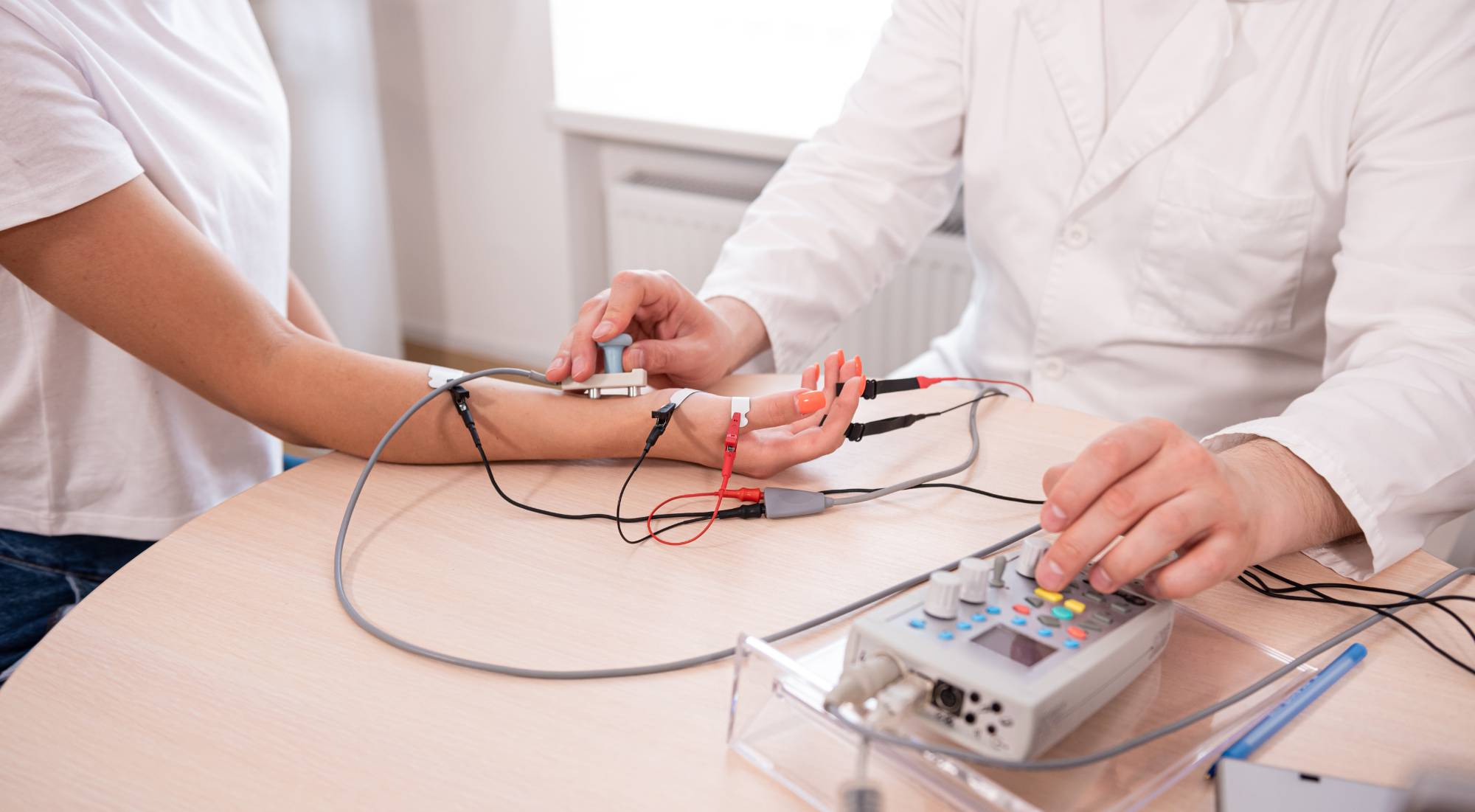
Reviews
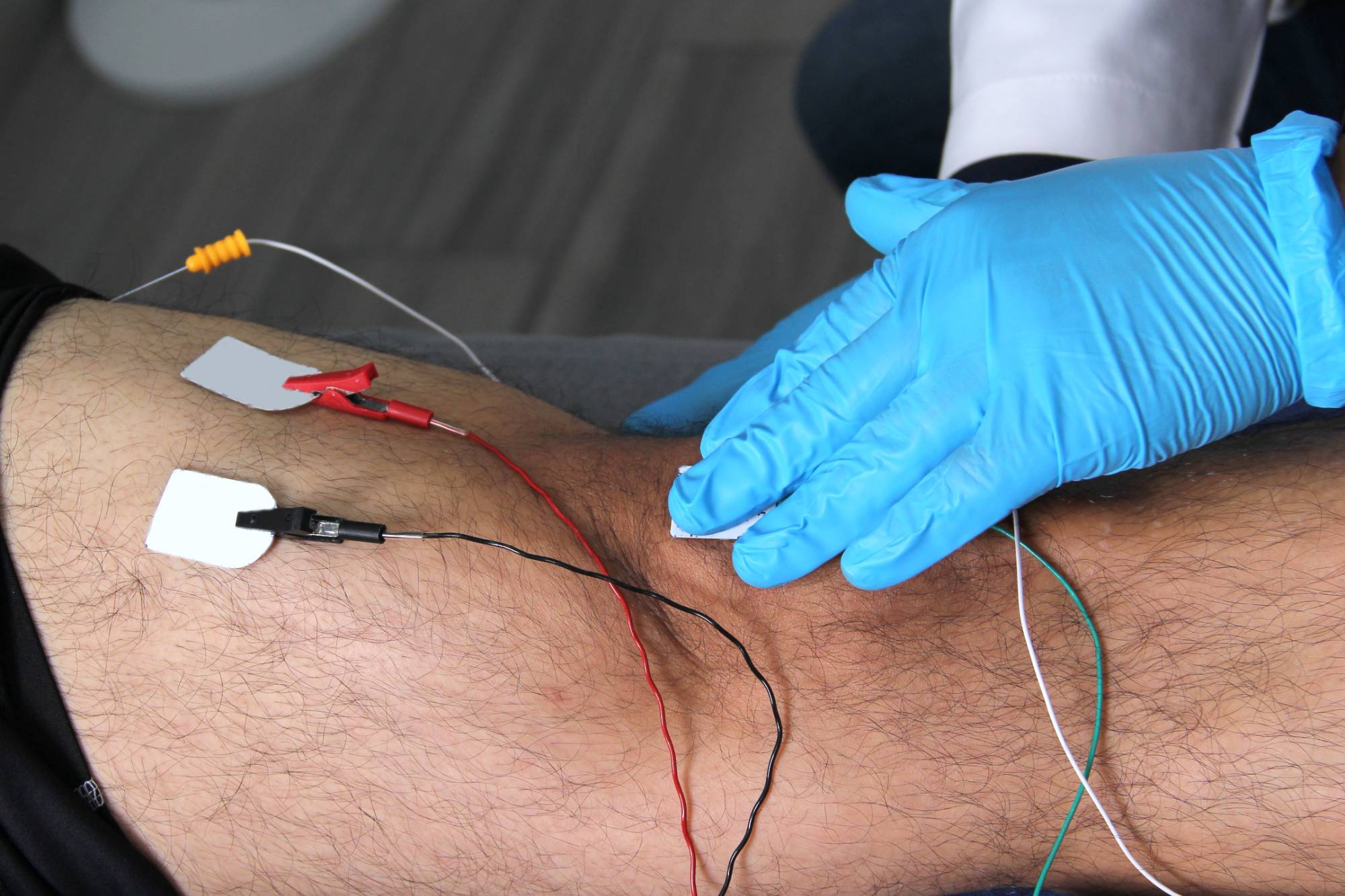
You’re tired of living with unexplained symptoms. The numbness in your hands keeps you awake. The muscle weakness makes simple tasks frustrating. You’ve been told it might be this or could be that, but nobody’s given you a definitive answer.
EMG testing changes that. This diagnostic procedure measures the electrical activity in your muscles and nerves, pinpointing exactly where the problem lies. Instead of guessing about carpal tunnel, sciatica, or diabetic neuropathy, you get concrete data about nerve function and muscle response.
When you know what’s actually happening in your body, treatment becomes targeted and effective. No more trial-and-error approaches or wondering if your symptoms are “all in your head.” You get a clear diagnosis that leads to a clear treatment plan.
We’ve been providing specialized neurological diagnostics to Central Florida communities for years. Our practice focuses specifically on spine-related conditions and nerve disorders, which means you’re not getting generalized care from someone who sees everything.
We understand that nerve pain and muscle weakness significantly impact your daily life. We’ve helped thousands of patients get accurate diagnoses through comprehensive EMG and nerve conduction testing. When you need answers about neurological symptoms, experience matters.
Located conveniently for Melrose residents, we accept most major insurance plans and provide same-day results when possible. You don’t have to drive hours to get expert nerve testing.
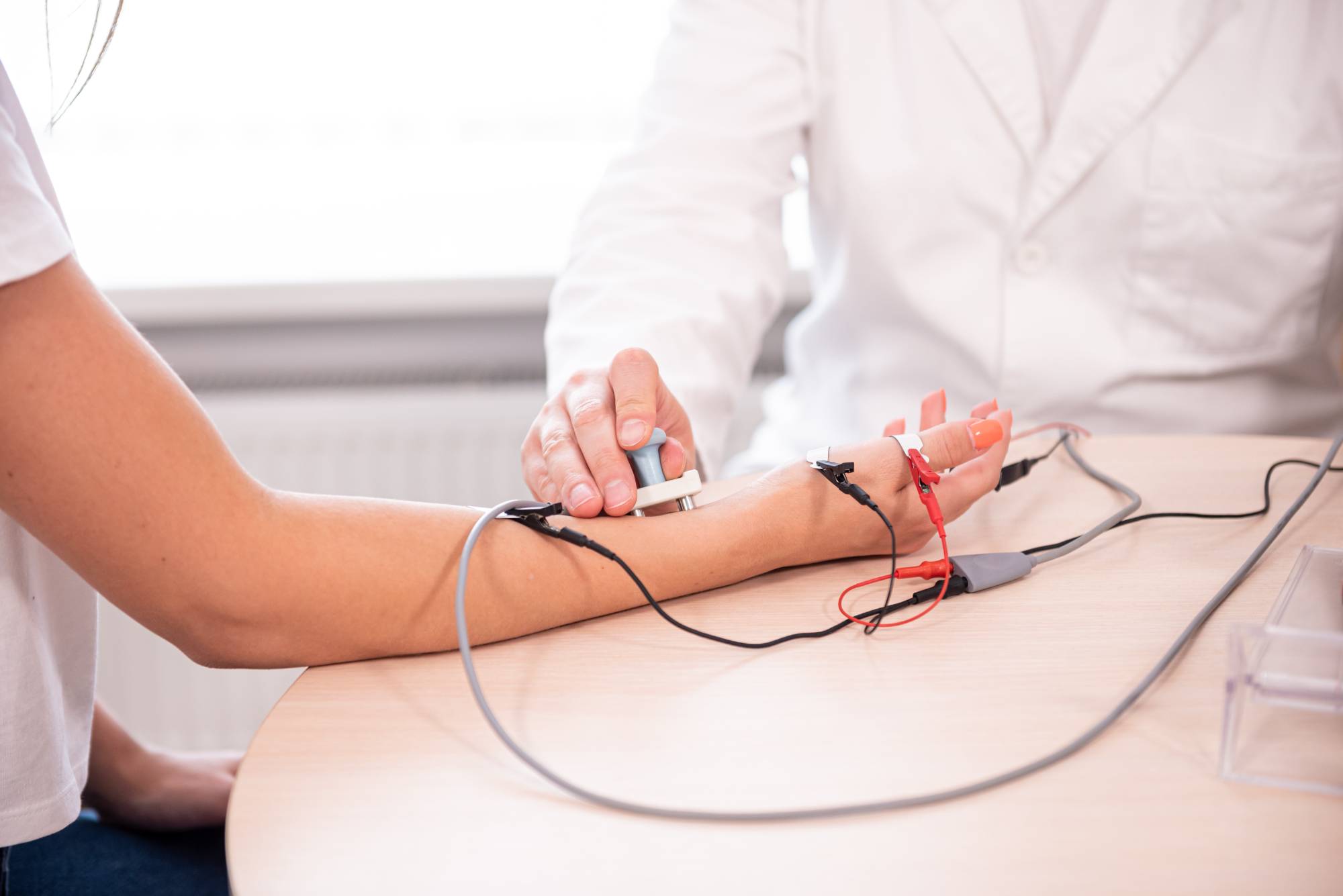
Our EMG testing process starts with a consultation about your symptoms and medical history. You’ll discuss when the numbness or weakness began, what makes it better or worse, and any previous treatments you’ve tried.
During the nerve conduction study portion, small electrodes are placed on your skin to measure how well electrical signals travel through your nerves. This part tests nerve function and identifies areas where signals are blocked or slowed. The electromyography portion involves a thin needle electrode that measures muscle electrical activity, showing whether muscle weakness stems from nerve damage or muscle disorders.
Most testing takes 30-60 minutes depending on which nerves and muscles need evaluation. You’ll get preliminary results immediately, with a comprehensive report typically available the same day. The findings directly guide your treatment options, whether that’s physical therapy, medication, injections, or other interventions.
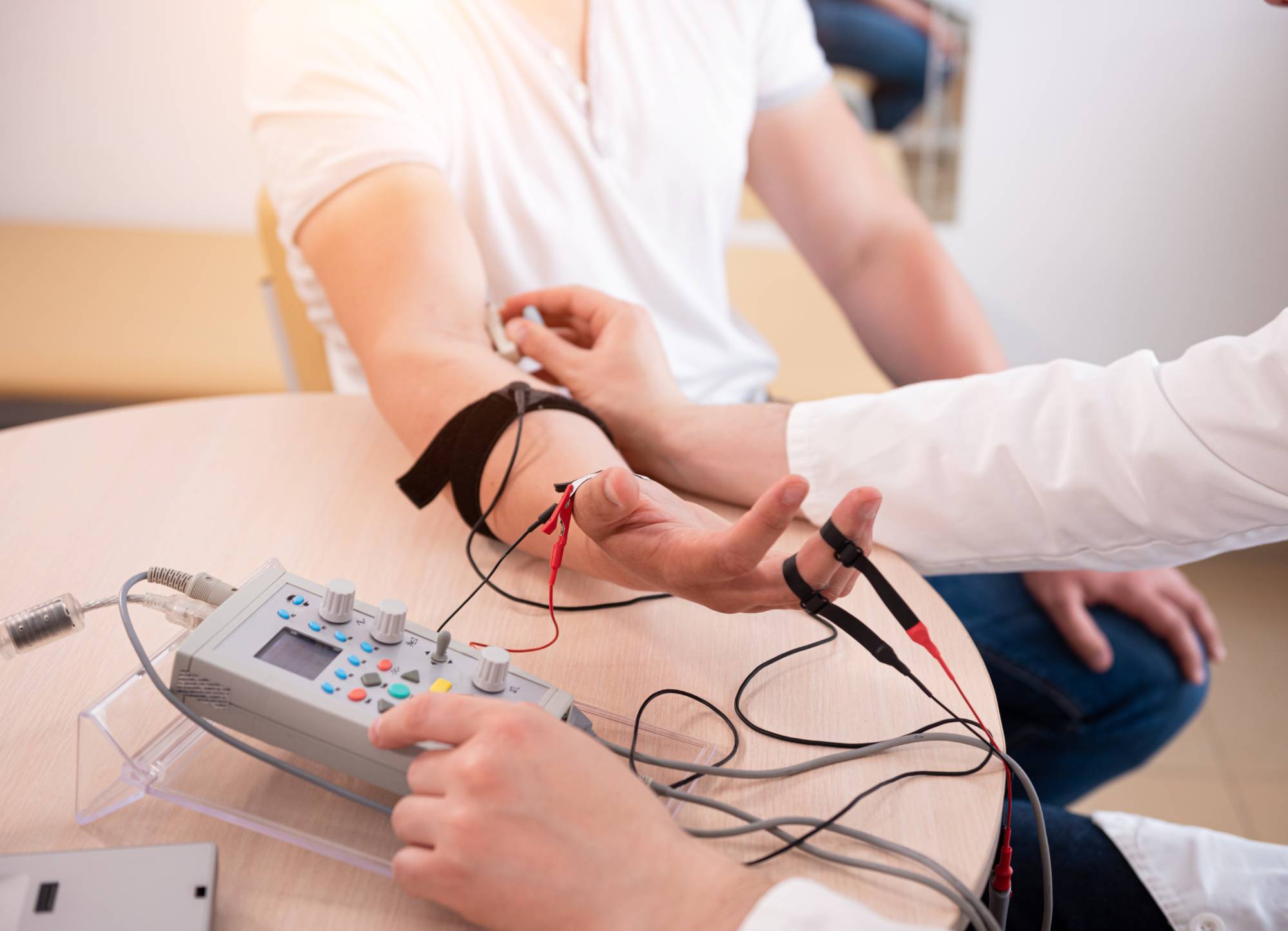
Ready to get started?
Your EMG testing includes both electromyography and nerve conduction studies for a complete picture of nerve and muscle function. Our testing evaluates common conditions like carpal tunnel syndrome, ulnar neuropathy, radiculopathy, and various muscle disorders that cause weakness or pain.
Our diagnostic process identifies specific nerve pathways affected by your condition. Whether you’re dealing with compression neuropathy from repetitive motions, diabetic nerve damage, or spine-related nerve impingement, our testing pinpoints the exact location and severity of the problem.
Results include detailed measurements of nerve conduction velocity, muscle response patterns, and specific recommendations for treatment. You leave with a clear understanding of your diagnosis and next steps, not more questions. Our comprehensive evaluation eliminates the need for multiple appointments or repeat testing at different facilities.
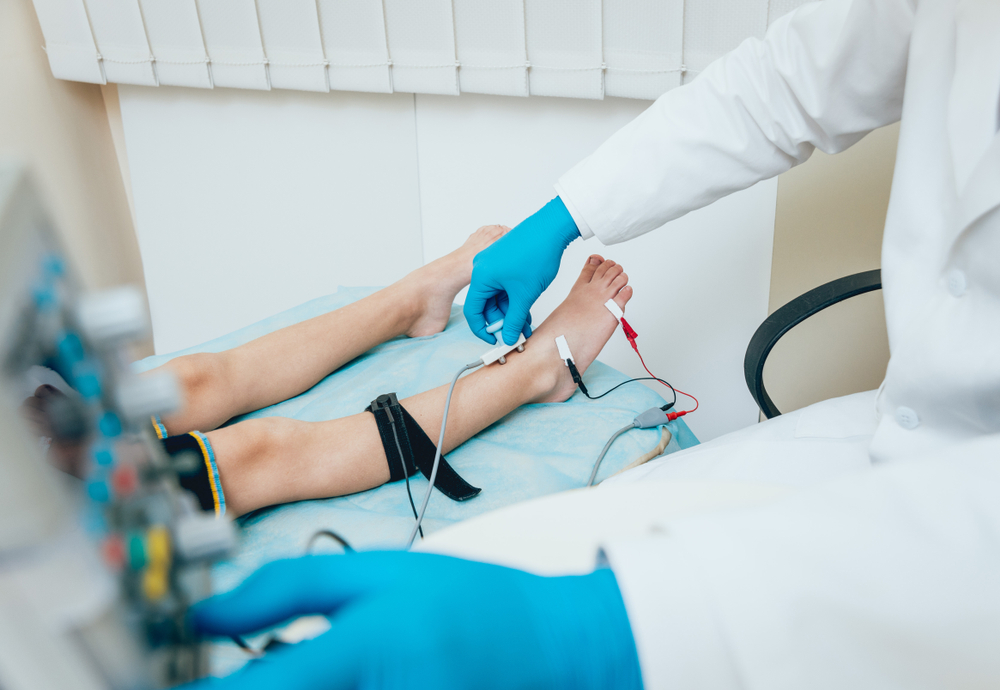
New York:
Florida:
Support